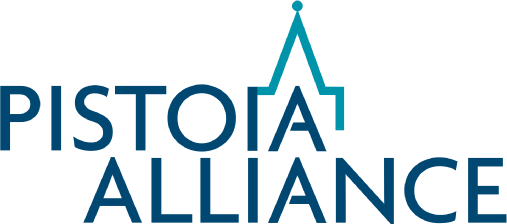The Alliance is seeking a strategic partner to develop the CSL Service in its next phase to support the Lab of The Future
Boston/London, XX August, 2018: The Pistoia Alliance, a global, not for profit alliance that works to lower barriers to innovation in life sciences R&D, is today announcing a number of milestones in its Chemical Safety Library (CSL) Service project, launched in March 2017. The CSL, which captures, stores and shares hazardous reaction information to improve laboratory safety, has seen a four-fold increase in the number of chemical incidents recorded, with a total of 138 reactions now added. In the year since its launch, over 1,000 people have registered to access the CSL database. Furthermore, all chemical reaction data in the CSL is now available in PubChem, NBCI’s database of chemical compounds used daily by researchers, scientists, and academics, with new CSL Service incident data automatically added to PubChem.
“The Chemical Safety Library has had a fantastic start – with the number of registrations showing the scientific community’s interest in ways to ensure lab safety,” commented Steve Arlington, President of The Pistoia Alliance. “Safety is everyone’s responsibility, but this type of crowd-sourced, community-based sharing is most valuable when users are engaged and involved. We are continually working to ensure the service is user-friendly, and we are now looking to collaborate with a strategic partner to continue developing the CSL. The Pistoia Alliance’s belief is that collaboration improves every area of research and development in life sciences – from innovation in lab safety to adopting next generation technologies like AI. Ultimately, this will help researchers meet the greatest unmet needs in areas such as precision medicine.”
The CSL Service is a resource for researchers to check chemical reactions and share previously inaccessible hazardous reaction info, with the hope of preventing repeat chemical incidents. Its role has been extended further as the scientific community develops the ‘Lab of The Future’ (LoTF). The Pistoia Alliance hosted it’s annual President’s Series Hackathon earlier this year to encourage stakeholders from the life sciences, healthcare and technology industries, as well as academia, to use the CSL Service data alongside technology that will feature in the LoTF. A group from the University of Southampton won the hackathon by integrating CSL data into Amazon Alexa – giving researchers the ability to simply speak to their surroundings for safety data. As the LoTF advances with new innovations, being able to access data in new ways – such as voice – will become invaluable to researchers.
“The data from the Chemical Safety Library has been extremely useful for our students,” commented Prof. Jeremy G Frey, Professor of Physical Chemistry, University of Southampton. “The students really enjoyed participating in the hackathon and have found it informative and enjoyable working with the team at The Pistoia Alliance. It helped the students think about data differently – developing applications to disseminate essential safety information in a more convenient format, while considering how technology will impact the LoTF. New channels, such as voice, are being more widely implemented in research environments as younger scientists entering the industry want to use the slick technologies they are familiar with from outside of the lab, to support their work.”
“After speaking with members, we discovered chemical incidents were still happening even where due diligence and other safety procedures, such as checking the material safety data sheet (MSDS) had been followed – showing how valuable the CSL resource is,” commented Gabrielle Whittick, Project Manager, Chemical Safety Library (CSL) Service at The Pistoia Alliance “In addition, we want to continue to change the culture around safety and ensure individuals and companies are empowered to share potentially harmful incidents in a way the entire industry can access. Our upcoming datathon will help inform students about the CSL service as well as collecting new examples of hazardous reactions. We urge any individuals and institutions with interest in supporting lab safety to come forward and get involved.”
The Pistoia Alliance is hosting a datathon at University College London on 21st September 2018 for postgraduate students, postdocs, CDTs, and librarians. To learn more about the datathon and how to participate in the CSL community, visit: http://www.pistoiaalliance.org/eventdetails/pistoia-alliance-chemical-safety-library-datathon/
To discuss becoming a strategic partner for the Chemical Safety Library Service, please contact Carmen Nitsche (carmen.nitsche@pistoiaalliance.org)
A full .csv file with all the data in the CSL is available on request from The Pistoia Alliance. To access the CSL Service and to input your own incident information, visit: http://www.pistoiaalliance.org/projects/chemical-safety-library/
— ENDS —
About The Pistoia Alliance
The Pistoia Alliance is a global, not-for-profit members’ organization made up of life science companies, technology and service providers, publishers, and academic groups working to lower barriers to innovation in life science and healthcare R&D. It was conceived in 2007 and incorporated in 2009 by representatives of AstraZeneca, GSK, Novartis and Pfizer who met at a conference in Pistoia, Italy. Its projects transform R&D through pre-competitive collaboration. It overcomes common R&D obstacles by identifying the root causes, developing standards and best practices, sharing pre-competitive data and knowledge, and implementing technology pilots. There are currently over 80 member companies; members collaborate on projects that generate significant value for the worldwide life sciences R&D community, using the Pistoia Alliance’s proven framework for open innovation.
